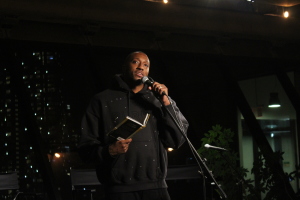Pastors Outline How Christians Should Disagree
Respectful personal relationships, stating the opponent’s position fairly and a responsible use of the internet are some of the ways for Christians to deal with disagreements within their ranks, three Christian scholars said in a video-recorded dialogue released Tuesday.
Is it possible to talk about one’s theological convictions in a way that is faithful and also winsome as Christian? Is there a way to do that?
The question posed by Tim Keller to his fellow interlocutors, Mike Horton and Matt Chandler, kick started a discussion on what Christians must consider while they disagree among themselves and with other theological opponents.
“I think there’s definitely a way to do it,” said Chandler, pastor at the Village Church. “It’s been my experience that it works best in the context of a relationship.”
“I’ve never had an experience of just kind of lobbing grenades – that kind of thing working, caricaturizing theological position.”
Categorizing someone too quickly is not very helpful, he added.
“It’s lot easier to caricature somebody you’ve never met,” Horton cautioned, who agreed with Chandler on the importance of personal relationship.
It’s possible to get a person wrong, even unintentionally, so it is imperative to understand the other person better through a conversation to really know the position he or she holds, Horton, author of The Christian Faith: A Systematic Theology For Pilgrims on The Way, added.
“The Ninth Commandment (You shall not bear false witness) kind of represents even our theological opponents,” Horton said.
Besides personal relationship and respect, Horton emphasized the need to gain a clear idea of the position of one’s opponent.
“I tell my students in class, if you write a paper where you are critical of a particular person – even if it’s a well-known philosopher or writer – you have to state the position in terms that that person would recognize before you earn the right to critique it,” a crucial point made early in the conversation by Horton, a professor of theology and apologetics at Westminster Seminary, Calif.
On a similar note, Tim Keller, pastor of Redeemer Presbyterian Church in Manhattan, stated that one of the rules is to “give the other person’s argument, position, in a way they not only recognize but in some cases might even say that’s as good as I could’ve done it. And then when you start to criticize it, they feel like you pay me the respect to really listen to me.”
“Do not assign a position to an opponent that he will not own even though you think it’s a necessary consequence.”
Horton underlined that as a problem even within Christian circles, where one tends to infer certain conclusions from an opponent’s position that may be contrary to the person who holds that position.
“It’s not the positions that are taken; it’s what we think it will lead to,” said Horton.
It may lead the person to think that we are not listening to them and they will refuse to listen to us and will not take our criticism seriously, Keller summarized.
Horton came to the heart of the matter when he stated the paradox that we are relieved of the burden when we trust God that He would use our evangelism to bring people to Christ but we are a lot more impatient with Christians.
“Because they are closest to us,” reasoned Keller.
Christians tend to be more impatient with people from their own denominations because they expect them to think exactly like themselves, he said.
“There might be something emotional going on there rather than just theological,” he continued. “I feel like you’ve betrayed me a bit because I got in this denomination and I thought everybody would think like I do and so it gets complicated but we have to be careful about being more strident and almost nasty to the people who are closest to us.”
Chandler noted that part of the problem was that now people judge each other’s theological positions based on a five-minute sound bite.
“It’s a 50-minute sermon, five-minute clip and then there are all these judgments that begin to roll out,” Chandler said, steering the conversation toward the influence of the internet on theological debates.
“I found the internet to make quiet people extremely brave and people who are not informed really emboldened in their opinion and the ability to add things and say things anonymously,” said Chandler who otherwise agreed that the internet is the future.
Keller observed that internet has reduced the time lapse between publication of a book, its review and the feedback it got from peers and general readers. In the pre-internet era responses to a book were generally measured, though they might have been occasionally nasty. But with the internet, respondents are breaking all the rules necessary for a well-thought-out feedback and the comments are coming in short order.
“It’s a good place to get information but a terrible place to do debating,” Keller said.
On the Web: http://thegospelcoalition.org/blogs/tgc/2011/07/05/how-to-disagree/



























